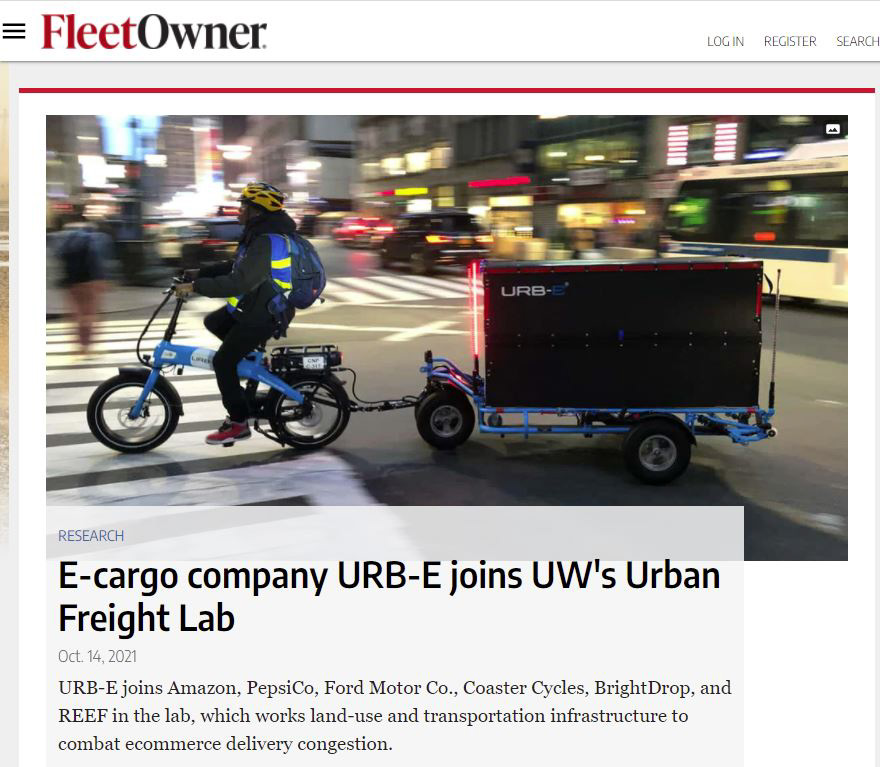
URB-E, the creator of a growing green e-cargo solution for last-mile delivery, announced it will become a member of the University of Washington’s Urban Freight Lab (UFL).
URB-E joins tech and delivery companies Amazon, PepsiCo, the Ford Motor Co., Coaster Cycles, BrightDrop, and REEF in the Urban Freight Lab, which works on projects that rethink land use and transportation infrastructure to combat ecommerce delivery congestion that put climate goals at risk.
“Urban Freight Lab is a vetted membership, so we are pleased that this honor validates the work URB-E has put into solving last-mile delivery challenges in dense urban areas,” Charles Jolley, CEO of URB-E, said. “We’re looking forward to participating in pilot projects and case studies with UFL to solve how the United States can adopt green delivery and make it sustainable and scalable.”
URB-E recently announced its national expansion with AxleHire to deliver packages after an initial pilot in Manhattan in New York City proved green last-mile delivery could be scaled efficiently. Every 3,000 packages delivered through URB-E can take 10 large delivery trucks off the road, resulting in a carbon dioxide savings of 79 metric tons per year.
“We found that if just half the packages delivered in New York City were handled as e-cargo it would take more than 4,000 large trucks off the road every day and also free up more than 1,500 parking spots,” Jolley said.
Designed by a former Porsche and Fisker engineer, URB-Es haul 800 lb. of cargo in the confines of bike lanes and can roll on and off trucks easily. Its battery storage has passed numerous safety and fire tests to ensure the safety of its riders and with those it shares the road.
“Having URB-E join the Urban Freight Lab means that we can further explore and evaluate zero-emission delivery solutions that are also safer and have a smaller footprint in urban areas,” Andisheh Ranjbari, the UFL’s manager, said.t